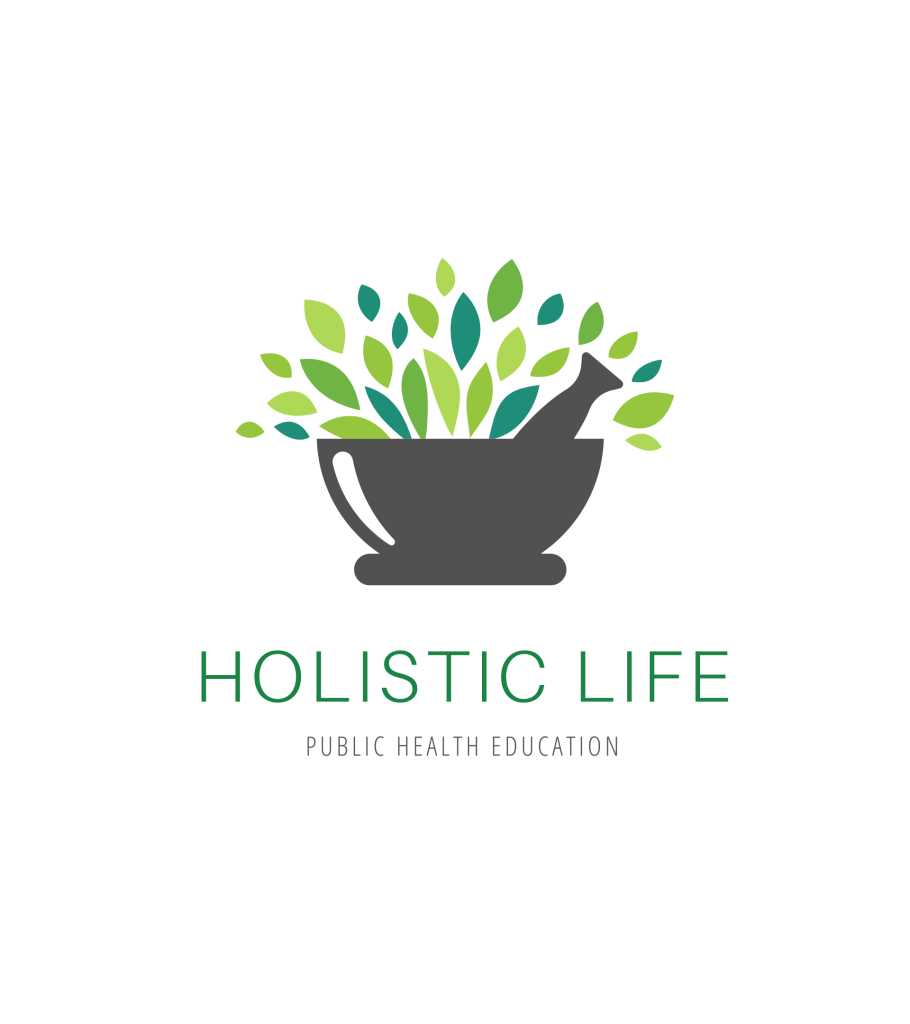Holistic medicine emphasizes treating the whole person rather than just symptoms, integrating physical, emotional, and spiritual health. As you explore the legitimacy of holistic doctors, you’ll find varying opinions and practices within this field. Understanding their qualifications, methods, and the evidence supporting their approaches can help you make informed decisions about your healthcare. This post will guide you through the necessary aspects of holistic medicine, enabling you to assess whether holistic doctors align with your health goals and needs.

Key Takeaways:
- Holistic doctors focus on treating the whole person, considering physical, emotional, and spiritual aspects of health.
- Some holistic practices lack rigorous scientific backing, making it important to research individual practitioners and treatments.
- Integrative medicine combining conventional and holistic approaches can enhance patient care and improve outcomes.
The Philosophical Foundations of Holistic Medicine
Historical Roots and Evolution
Holistic medicine has roots in ancient practices, tracing back to cultures such as Afroindigenous practices of Africa and the Americas, Ayurveda in India as well as traditional Chinese medicine, which emphasize balance between the body, mind, and spirit. These early systems offered an integrative approach long before the term “holistic” was popularized in modern medicine. Over the centuries, holistic practices have evolved, influencing contemporary healthcare paradigms and promoting a shift from symptom-focused treatment to comprehensive healing.
Core Principles of Holistic Healthcare
Holistic healthcare operates on several core principles that differentiate it from traditional approaches. You’ll find that it emphasizes treating the whole person—considering psychological, emotional, social, and spiritual factors alongside physical health. This perspective acknowledges interdependence among various aspects of your well-being and fosters a partnership between you and your healthcare provider.
Implementing these core principles involves recognizing the uniqueness of each individual. You are encouraged to actively participate in your health journey, allowing personalized treatment plans that cater to your specific needs. Holistic practitioners often utilize various modalities, including nutrition, exercise, and mindfulness, to support health restoration and maintenance. This comprehensive model promotes prevention and wellness while addressing the root causes of ailments rather than merely alleviating symptoms. For deeper insights, explore What Is Holistic Medicine and How Does It Work?.
Assessing Legitimacy: Credentials and Qualifications of Holistic Practitioners
Accreditation and Licensing Standards
Not all holistic practitioners are held to the same accreditation standards. Some may possess legitimate medical degrees or licenses, while others operate without formal qualifications. You should verify if the practitioner has credentials from recognized institutions and whether they comply with state or national licensing requirements. This due diligence helps ensure that you receive safe and effective treatment. Please note each designation, each credential, and each state all have different standards.
The Role of Professional Organizations
Professional organizations play a key role in establishing credibility for holistic practitioners by setting standards for education, ethics, and practice. They often provide resources for ongoing education and professional development, which can significantly enhance a practitioner’s qualifications. Membership in such organizations often signifies adherence to specific ethical guidelines and a commitment to evidence-based practices.
Organizations like the American Holistic Medical Association and the National Center for Complementary and Integrative Health maintain rigorous standards for their members. They often require continuing education to ensure practitioners stay current with the latest research and methodologies in holistic treatments. Furthermore, these organizations offer platforms for practitioners to connect, share knowledge, and advocate for holistic health approaches. This network of support not only elevates individual practitioners but also enhances the overall legitimacy of the holistic medical field.
For more information, see What Does a Holistic Doctor Do?.
Navigating the Spectrum: Differentiating Genuine Holistic Practices from Pseudoscience
Evidence-Based Approaches vs. Unsubstantiated Claims
Evaluating holistic practices requires discernment between evidence-based approaches and unsubstantiated claims. Genuine holistic doctors utilize treatments backed by scientific research and clinical data, integrating conventional medicine where appropriate. Look for practitioners who reference peer-reviewed studies or established protocols, as this indicates a commitment to patient safety and efficacy. In contrast, claims lacking scientific validation or relying heavily on anecdotal evidence should raise concerns about their legitimacy.
Red Flags to Watch For
Identifying red flags in holistic practices can prevent you from falling prey to pseudoscience. Signs like vague terminology, overpromising results, and a lack of transparency regarding treatment methods often suggest unreliable practices. Additionally, practitioners who prioritize profit over patient well-being or who discourage conventional medical treatment should be approached with caution.
Be vigilant about practitioners who utilize high-pressure sales tactics to promote supplements or therapies with exaggerated claims. For example, if a holistic doctor asserts that their treatment can cure chronic diseases without acknowledging the complexities of those conditions or the need for comprehensive care, this should raise alarms. Verify credentials and seek second opinions where necessary to ensure that you are receiving safe and effective care. An open dialogue about treatment protocols and a willingness to discuss risks are characteristics of a credible holistic practitioner.
The Integrative Approach: How Holistic Doctors Collaborate with Conventional Medicine
Complementary Treatments: Benefits and Challenges
Holistic doctors often incorporate complementary treatments into patient care, enhancing the overall healing experience. These approaches, which may include acupuncture, herbal therapies, or dietary changes, can improve wellness alongside conventional medicine. However, challenges arise, such as the need for clear communication between practitioners and potential inconsistencies in treatment protocols. Establishing a collaborative environment ensures that patients receive the best of both worlds while minimizing risks.
Real-World Examples of Successful Integrative Cases
There are numerous instances where the integrative approach has proven successful, demonstrating the benefits of combining holistic and conventional medical practices. One case involved a cancer patient who, alongside chemotherapy, utilized Naturopathy to manage symptoms, resulting in improved quality of life and fewer side effects. Such examples highlight the potential for enhanced patient outcomes when both methods collaborate effectively.
In one notable example, a patient with chronic pain underwent traditional pain management, including medications and physical therapy. Simultaneously, they engaged with a holistic practitioner who introduced mindfulness meditation and nutrition adjustments. Over six months, the patient reported a significant reduction in pain levels and improved emotional well-being. This case illustrates how integrating holistic practices with standard treatments can lead to comprehensive healing and empower patients on their healthcare journey.
Patient Testimonials and Experiences: Voices from the Field
Positive Outcomes and Success Stories
Many patients report transformative experiences after seeking care from holistic doctors. For instance, a study involving over 200 patients found that 78% experienced significant improvements in their chronic pain management through a combination of natural therapies and lifestyle changes. Testimonials often highlight the personalized care and attention that lead to enhanced emotional and physical well-being, showcasing a range of success stories—from managing anxiety to drastically improving energy levels.
The Importance of Individual Perspectives
The stories of those who have sought holistic care illustrate the diverse range of experiences that go beyond clinical outcomes. Individual perspectives shed light on the holistic approach’s effectiveness and the strong patient-practitioner relationships that often develop. You might find insights into how treatment plans tailored to personal needs create a sense of ownership and empowerment in your health journey, leading to further engagement in one’s wellness.
Personal narratives emphasize how different modalities resonate with different individuals. A cancer survivor may recount how nutrition and therapy combined with traditional medicine helped them cope with treatment side effects, while another might feel revitalized by acupuncture and mindfulness practices. These experiences highlight the multifaceted nature of holistic health, where one person’s healing avenues could differ significantly from another’s, reinforcing the necessity for a patient-centric approach in treatment.

The Role of Research: Current Studies and Findings on Holistic Medicine
Key Research Areas
Research on holistic medicine often centers around its effectiveness in managing chronic conditions, stress reduction, and pain relief. Studies indicate significant improvements in patient outcomes when therapies like acupuncture, mindfulness, and herbal medicine are integrated into traditional treatment plans. You may find evidence supporting the benefits of mind-body techniques, such as yoga and meditation, which have been shown to enhance mental health and foster overall well-being.
Implications for Future Practice
The growing body of research surrounding holistic medicine suggests a shift towards more integrative healthcare models. Enhanced cooperation between holistic practitioners and conventional doctors can lead to more personalized treatment plans, addressing both physical and psychological aspects of health. This perspective encourages you to consider how holistic therapies may complement mainstream medicine.
As evidence supporting holistic practices continues to mount, healthcare systems may evolve to incorporate these methodologies more fully. For instance, hospitals are now increasingly integrating complementary therapies, such as aromatherapy and dietary interventions, into standard care protocols. This not only recognizes the role of patient-centered care but also opens the door for you to explore a wider range of options in your healthcare journey. The future could see holistic medicine becoming a standard component of patient care, emphasizing the importance of treating the whole person rather than merely addressing symptoms.
Debunking Common Misconceptions Around Holistic Health
Myths vs. Facts
You may encounter numerous myths about holistic health, such as the belief that it solely relies on alternative therapies and dismisses conventional medicine. In fact, many holistic practitioners incorporate evidence-based treatments alongside natural remedies. While some view holistic approaches as unscientific, emerging research increasingly supports their efficacy, integrating mind, body, and spirit for comprehensive patient care.
The Importance of Informed Decision-Making
In navigating your healthcare options, understanding the differences between holistic and conventional medicine can empower you. Evaluating the credentials of practitioners and considering peer-reviewed studies allows for informed choices, ensuring you receive safe and effective treatments tailored to your needs.
Informed decision-making involves researching and questioning various treatment modalities, evaluating their benefits and risks. Engaging with both holistic and traditional healthcare providers can provide a well-rounded perspective. For example, a study published in the Journal of Alternative and Complementary Medicine found that patients who integrated holistic approaches with conventional treatments reported improved overall health. Your personal health goals can guide these choices, promoting a more personalized and effective care plan.
Final Words
Hence, when considering holistic doctors, it’s crucial to evaluate their qualifications, approach, and the specific treatments they offer. While some may provide valuable insights and practices that complement conventional medicine, others may not be scientifically validated. You should thoroughly research and consult with healthcare professionals to ensure that any treatment aligns with your health needs. Ultimately, maintaining a balanced perspective will help you make informed decisions about your health and wellness journey.
FAQ
Q: Are holistic doctors recognized by conventional medicine?
A: Holistic doctors often have varying levels of training and certification. While some may be licensed professionals in fields like chiropractic or acupuncture, others may lack formal medical training. It’s important to verify their credentials and ensure they are licensed in their respective disciplines.
Q: What should I consider before seeing a holistic doctor?
A: Before consulting a holistic doctor, consider their qualifications, the types of therapies they practice, and whether they work in conjunction with conventional medical treatments. It’s also advisable to check reviews or testimonials from previous patients.
Q: Can holistic treatments effectively complement traditional medicine?
A: Holistic treatments can complement traditional medicine by addressing lifestyle, nutrition, and emotional well-being. However, effectiveness varies by individual and condition. Always consult with both holistic and conventional healthcare providers to create a cohesive treatment plan.
